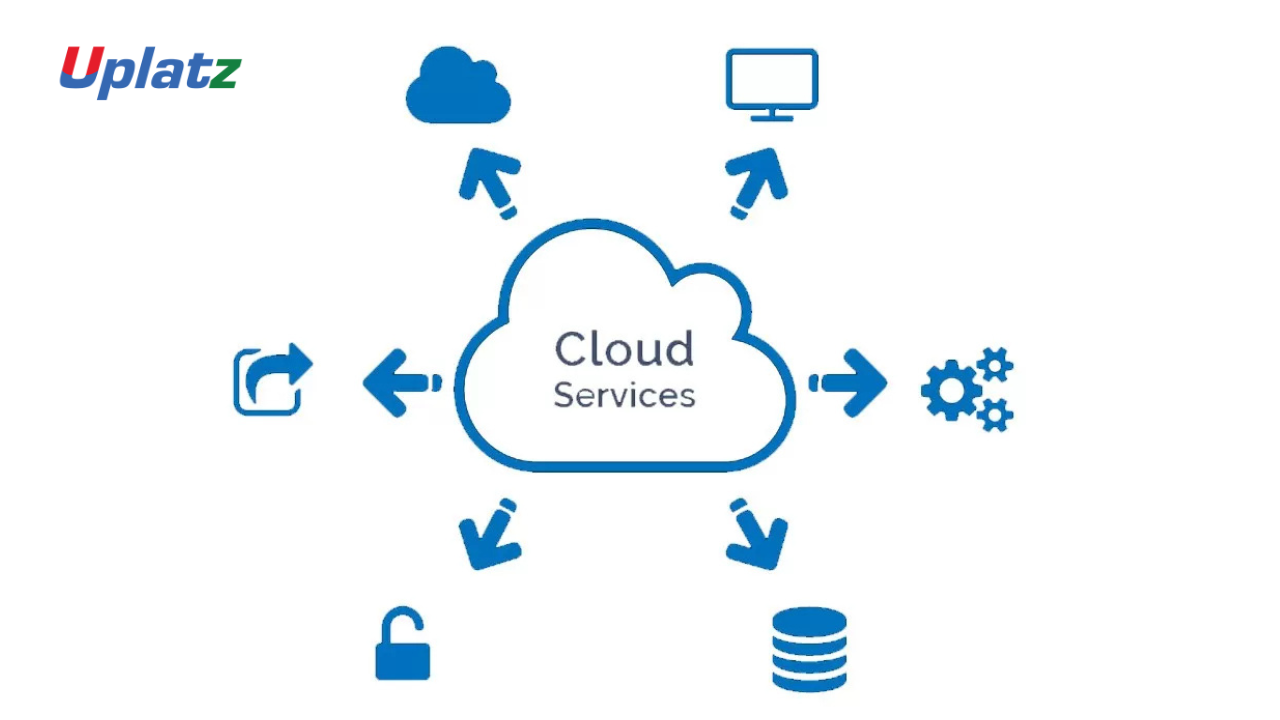Summary
Choosing the best cloud platforms for startups is a make-or-break decision in 2025. This blog compares AWS, Azure, Google Cloud Platform (GCP), and emerging alternatives across performance, scalability, cost, AI integration, and startup-friendliness. Whether you’re a bootstrapped founder or a VC-backed disruptor, this guide helps you select a cloud that aligns with your product vision, team size, and budget.
Bundle Course – Cloud Platforms BY UPLATZ
Introduction
In 2025, cloud platforms are not just infrastructure—they’re innovation engines. Startups are no longer limited to servers and storage; instead, they have access to a suite of AI services, DevOps automation, databases, analytics, and security tools—right out of the box. But with power comes complexity. AWS, Azure, GCP, and new challengers like Oracle Cloud, DigitalOcean, and Vercel all promise scalability and agility, yet they vary widely in ease of use, pricing, developer support, and ecosystem. Finding the best cloud platforms for startups is now a strategic decision that can influence growth, cost efficiency, and time to market.
Cloud Platforms Compared
1. Amazon Web Services (AWS)
Best for: Scalable backend systems, global reach, and mature DevOps pipelines.
AWS continues to dominate with unmatched breadth—over 200 fully-featured services. From EC2 and S3 to SageMaker and Lambda, it offers everything a startup could need, but the learning curve and cost can be high.
Startup-friendly features:
-
AWS Activate credits ($1,000–$100,000 for eligible startups).
-
Broadest global infrastructure (100+ availability zones).
-
Native support for AI, ML, IoT, analytics, and more.
Watch out: Pricing complexity, steep learning curve for non-engineers.
2. Microsoft Azure
Best for: B2B SaaS startups, enterprise-focused solutions, and hybrid cloud use.
Azure has gained serious traction among startups building apps for regulated industries or Microsoft ecosystems. Its integration with GitHub, Power Platform, and enterprise tooling gives startups access to CI/CD, BI, and app hosting tools under one umbrella.
Startup-friendly features:
-
Microsoft for Startups Founders Hub (free credits, mentorship).
-
Excellent support for .NET, Java, Node.js, and enterprise connectors.
-
Azure OpenAI Services for startups diving into GenAI.
Watch out: UI/UX can feel fragmented; some services are more geared toward large organizations.
3. Google Cloud Platform (GCP)
Best for: AI/ML-powered products, data-centric startups, and developer-driven teams.
GCP stands out for AI, ML, and data analytics. Startups love BigQuery, Vertex AI, and Firebase for real-time apps. It’s also a favorite among engineering-heavy teams focused on performance.
Startup-friendly features:
-
Google for Startups Cloud Program (up to $200,000 in credits).
-
Firebase for fast app prototyping and deployment.
-
Leading AI tools (TPUs, PaLM, Gemini APIs).
Watch out: Smaller global footprint than AWS; fewer third-party integrations.
4. Other Emerging Platforms
a) Oracle Cloud Infrastructure (OCI)
Best for: Cost-conscious startups, especially in fintech and healthcare.
OCI has made massive strides with enterprise-grade performance at very low pricing. It’s gaining popularity with AI startups and high-throughput applications.
Notable perks:
-
Generous free tier with Always Free services.
-
High-performance GPUs and AI infrastructure at low cost.
b) DigitalOcean
Best for: Simplicity-first startups, indie developers, and MVPs.
DigitalOcean simplifies cloud hosting with predictable pricing and a developer-friendly interface. It’s great for launching quickly without DevOps overhead.
Notable perks:
-
Fixed, transparent pricing.
-
App Platform for no-code/low-code deployments.
-
Marketplace with pre-configured stacks.
c) Vercel & Netlify
Best for: Frontend and Jamstack startups.
These platforms are optimized for modern web apps, offering serverless hosting, edge functions, and tight integration with Next.js and other frameworks.
Notable perks:
-
Free plans and hobby-tier resources.
-
Fast global CDN.
-
One-click Git-based deployment.
Key Decision Factors for Startups
| Criteria | AWS | Azure | GCP | Others |
|---|---|---|---|---|
| Pricing | Moderate-High | Moderate | Moderate | Varies (DigitalOcean = Low) |
| AI/ML Support | Strong | Strong | Excellent | OCI (Strong), DO (Limited) |
| Speed to MVP | Moderate | Fast | Fast | Very Fast (Vercel, DO) |
| Dev Community & Docs | Extensive | Strong | Developer-centric | Strong (for niche use) |
| Startup Credits | Yes (Activate) | Yes (Founders Hub) | Yes (GFS Program) | Yes (DO Hatch, OCI, Vercel) |
| Ecosystem Integrations | Broadest | Microsoft stack | Deep (ML, Firebase) | Lighter, but targeted |
Conclusion
Startups in 2025 have more cloud options than ever—and the “best” choice depends on what you’re building.
-
Go AWS if you’re scaling fast, need flexibility, and have DevOps chops.
-
Choose Azure if you’re selling to enterprises or building in .NET.
-
Pick GCP if your startup is AI-first or data-intensive.
-
Explore OCI, DO, or Vercel for simpler pricing, frontend projects, or cost efficiency.
Evaluate not just features, but how a cloud platform aligns with your team’s expertise, go-to-market strategy, and budget. Choosing from the best cloud platforms for startups means finding a provider that grows with you—technically, financially, and strategically.
References
-
AWS Activate Program – https://aws.amazon.com/activate
-
Microsoft for Startups – https://startups.microsoft.com
-
Google Cloud for Startups – https://cloud.google.com/startup
-
Oracle Cloud Free Tier – https://www.oracle.com/cloud/free
-
DigitalOcean Hatch – https://www.digitalocean.com/hatch
-
Vercel for Startups – https://vercel.com/solutions/startups
